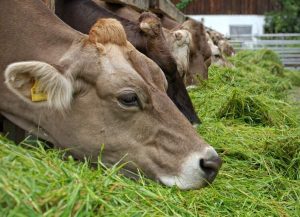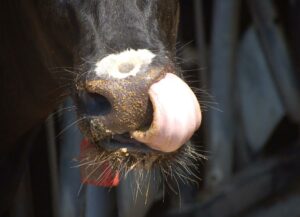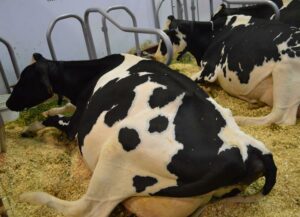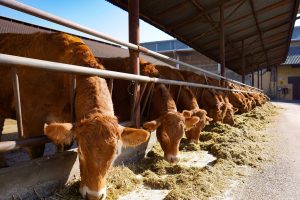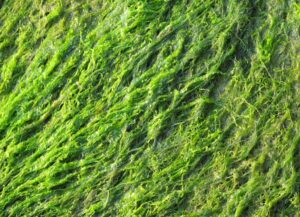Fernando Diaz
Biotin is a water-soluble vitamin that is synthesized by ruminal bacteria. It is a vital enzyme cofactor involved in several metabolic processes including fat and carbohydrate metabolism, and protein synthesis. Because newborn calves do not have a functional rumen, they rely on biotin acquired in utero and by colostrum intake.
Providing a colostrum with optimized concentrations of biotin could be beneficial for the pre-ruminant calf growth and health. A recent study conducted at the Agriculture and Agri-Food Canada Research Centre, Quebec, Canada evaluated the effect of maternal biotin supplementation before calving on colostral and plasma concentrations in this vitamin in both the cow and the newborn calf.
During 26 days before the expected calving date, the researchers (Duplessis and Girard, 2019) supplemented multiparous Holstein cows with 20 mg/day of dietary biotin. The diet included 77% forage (42.3% corn silage, 26.9% hay, and 7.8% grass/legume silage) in a dry matter basis, and protein and energy levels were 13.7% and 1.52 Mcal ENL/kg.
Before starting the study, biotin plasma concentrations in cows did not differ among treatments (1.73 ng/mL). However, cows receiving supplementary biotin during prepartum increased plasma concentrations of biotin by 3.7 fold (6.31 vs. 1.69 ng/mL). Moreover, feeding biotin increased colostral biotin concentration from 25.1 to 310.0 ng/mL. Colostrum yield from first milking and colostral concentration of immunoglobulin G were not affected by the supplementation.
Colostrum was fed with a nipple bottle at 3 hours (2.4 kg) and 15 hours (2.8 kg) after birth. Maternal biotin supplementation successfully increased biotin plasma concentration in newborn calves. Biotin level in blood samples taken 25 hours after birth was 7.5 fold greater in calves born to mothers fed biotin during the prepartum period than calves born from unsupplemented cows (8.91 vs. 1.19 ng/mL). Interestingly, plasma immunoglobulin G concentration in newborn calves was not affected by vitamin supplementation (13.6 g/L).
In conclusion, this experiment suggests that biotin supplementation during prepartum could be an effective way to provide more of that vitamin to the newborn calves.
Reference
Mélissa Duplessis, Christiane L. Girard. 2019. Effect of maternal biotin, folic acid, and vitamin B12 supplementation before parturition on colostral and Holstein calf plasma concentrations in those vitamins. Animal Feed Science and Technology. 256: 114241.
© 2019 Dairy Knowledge Center, LLC. All Rights Reserved.



